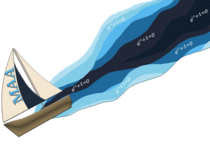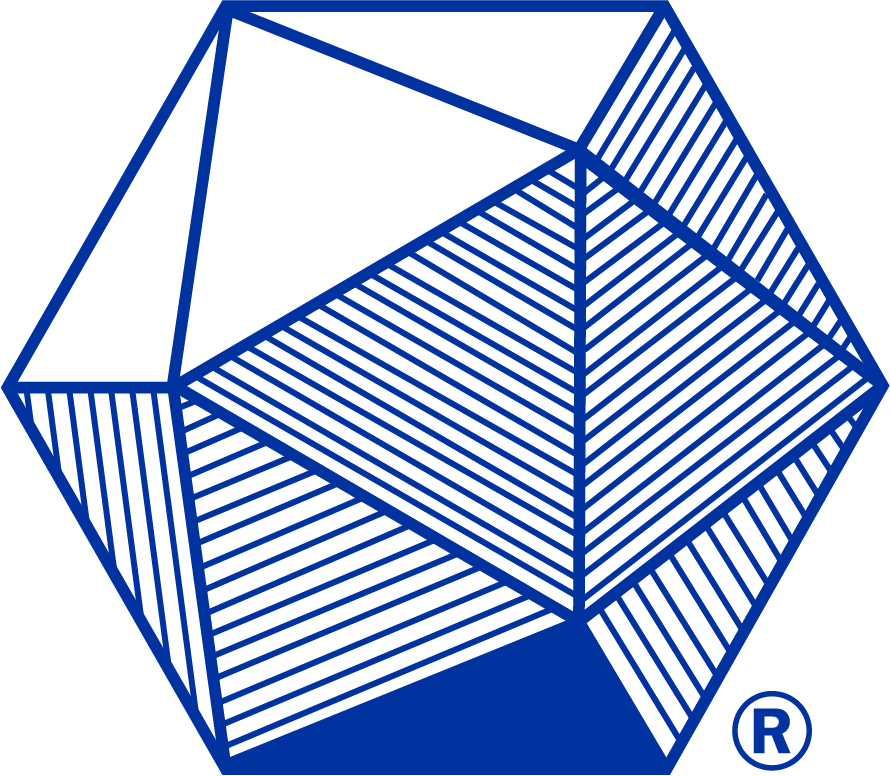Saturday – May 6
Location: STC 0020
-
- Time:
- 12:30 pm – 12:55 pm
- Title:
- Cantor Sets and Cantorvals observed as Subsums of Multigeometric Series
- Speaker:
- Timothy Ferdinands (Alfred University)
Abstract
Given an absolutely convergent infinite series, the set of all possible subsums of the series can be described topologically as one of three possibilities: (i) a finite union of closed intervals, (ii) a cantor set, or (iii) a cantorval. Although quite a bit is known about cases (i) and (ii), there are not many known examples of case (iii). We provide specific examples of all three possibilities and discuss conditions required for a series in order for its set of selective sums to be either a cantor set or the more elusive cantorval.
-
- Time:
- 12:55 pm – 1:20 pm
- Title:
- Some Counterexamples in Real Analysis
- Speaker:
- Gabriel Prajitura (SUNY Brockport)
Abstract
We will discuss some extreme counterexamples that will put in a better light the relation between such concepts as Lipschitz and uniform continuity, intermediate value property and continuity, and few more. This is based on joint work with Andrei Vernescu & Dinu Teodorescu from Valahia University, Romania, and with Gabriela Ileana Sebe from Politehnica University of Bucharest and Gheorghe Mihoc-Caius Iacob Institute of Mathematical Statistics and Applied Mathematics of the Romanian Academy
-
- Time:
- 1:20 pm – 1:45 pm
- Title:
- Differential Calculus: From Practice to Theory
- Speaker:
- Robert Rogers (SUNY Fredonia)
Abstract
The typical differential calculus class starts with foundational topics such as limits and continuity and uses these to progress to derivatives. This is certainly logically correct, but it is not historically accurate. More importantly, this is not effective pedagogically as students are learning answers to foundational questions before they know what these questions are. The authors propose that it is more natural for students to start by using differentials as a problem solving tool and letting foundational questions arise from the nuances that occur. After students are accustom to using differential calculus as a powerful problem solving tool, a foundation based on limits can be introduced to address the nuances. This talk will present excerpts from the draft of an open source text utilizing this approach.
-
- Time:
- 1:45 pm – 2:10 pm
- Title:
- Metric Dimension of Generalized Hamming Graphs
- Speaker:
- Christine Uhl (St. Bonaventure University)
Abstract
Given a graph, choose a set of vertices to be a set of landmarks and assign every vertex in the graph a location vector recording the shortest distances to each of the landmarks. If all vertices receive different location vectors, then we say the landmarks resolve the graph. The metric dimension of the graph is the minimum number of landmarks needed to resolve the graph. In this talk, we consider the metric dimension for a diagonal family of 3-dimensional generalized Hamming graphs. The approach is constructive and is made possible by first characterizing resolving sets in terms of forbidden subgraphs of an auxiliary edge-colored hypergraph.
-
- Time:
- 2:10 pm – 2:35 pm
- Title:
- How to differentiate a number?
- Speaker:
- Xiao Xiao (Utica University)
Abstract
The arithmetic derivative is a function from the set of natural numbers that sends all prime numbers to 1 and satisfies the Leibniz rule (aka as the product rule in calculus). Many unsolved problems in number theory, such as Goldbach's conjecture and twin prime conjecture, can be posed in the context of arithmetic derivative. In this talk, we will survey some elementary properties of the arithmetic derivative and then discuss solutions to two problems on anti-derivatives and higher derivatives in the partial derivative case.
Saturday – May 6
Location: STC 0040
-
- Time:
- 12:30 pm – 12:55 pm
- Title:
- Building Community and Celebrating Pi-Day with a Pi-athlon!
- Speaker:
- Daniel Look (St Lawrence University)
Abstract
It isn’t uncommon for mathematics departments to recognize and/or celebrate Pi Day (March 14th). (A popular event is “pi(e) a professor.â€) Since the spring of 2010, St. Lawrence University has hosted a “pi-athlon†in celebration. The pi-athlon is based on the notion of bi- and triathlons. In a biathlon contestants compete in 2 events; in a triathlon contestants compete in 3 events. Naturally, in a pi-athlon contestants compete in pi events. This means that completing a pi-athlon is similar to completing in 3 events and roughly 14% of a fourth. (So, walking off the track a little over 14 meters into the 100-meter dash.) Our events include mathematical puzzles, math-based video games, sudoku, and others. It has proven popular with students (this year we had over 100 students in attendance) and helps maintain and build our departmental community. I’ll outline the idea and implementation, including examples of the events, so anyone interested can do their own variation.
-
- Time:
- 12:55 pm – 1:20 pm
- Title:
- Formal Proof Verification in Math Education
- Speakers:
- Anton Mosunov (University of Waterloo), David Jao (University of Waterloo)
Abstract
The transition from calculation-based math to rigourous proof-based mathematics is difficult for many students to navigate. Traditionally, Waterloo has a specific class designated for this purpose (MATH 135: Algebra), and students are taught how to write mathematical proofs in the classroom, using a combination of lectures, examples, group work, auto-graded and written assessments, and feedback from course staff. In recent years, a group of instructors in MATH 145 (the advanced-level version of MATH 135) has experimented with an alternative approach, using computer software to validate rigorous proofs formally. During this talk, we will introduce Coq, the computer program that we are using for formal proof verification in MATH 145, demonstrate some of its capabilities, and describe our efforts at integrating formal verification into the classroom curriculum. Our hope is to initiate at least an initial discussion of whether formal proofs in Coq can complement existing course components in first-year proof-focused courses that are taught in a traditional way. In our experience, formal proofs could potentially be a tremendous asset in breaking through the scaling barriers that sometimes limit the effectiveness of a traditionally taught introduction to proofs class, but also introduce new issues of their own that remain unresolved in the broader context.
-
- Time:
- 1:20 pm – 1:45 pm
- Title:
- Universal Design for Learning - Assessing Inclusively
- Speaker:
- Diana Skrzydlo (University of Waterloo)
Abstract
Universal Design for Learning (UDL) refers to course design choices that maximize the accessibility of your material and assessments to students. It can have huge benefits for students with disabilities, but also has a positive impact on all students. This phenomenon is sometimes called the “curb cut effect,†where an accommodation for some people makes the world better for everyone. When applying Universal Design to a course, the principles are to include multiple means of presentation, engagement, and expression. But it does not mean sacrificing academic standards. When I employed UDL principles in my coures, students who normally require several accessibility accommodations were able to engage with my course exactly as it was designed, because the barriers they normally face were already removed. In this talk I will share my approach and overall thoughts, including the easiest ways to improve the accessibility of your courses.
-
- Time:
- 1:45 pm – 2:10 pm
- Title:
- Ungrading and Mastery Grading in Two Undergrad Courses
- Speaker:
- Zack Wolske (None)
Abstract
During the 2021-22 school year, we introduced ungrading and mastery grading concepts in two different courses: a 2nd year linear algebra with proofs (3 instructors, 8 TAs, 400 students) intended as a gateway to advanced pure math classes, and a 1st year engineering linear algebra (2 TAs, 50 students) intended as a second chance or transfer-in credit to satisfy the program requirements. I'll discuss what we changed in assessments and TA work, why we thought they would help these specific students, and the student evaluations of these non-traditional teaching methods.
-
- Time:
- 2:10 pm – 2:35 pm
- Title:
- Introduction to NYSMATYC
- Speaker:
- Chris Yuen (SUNY Buffalo)
Abstract
New York State Mathematics Association of Two-Year Colleges (NYSMATYC) has been around since 1967, before AMATYC, the national organization, was founded. This short talk gives an overview of the mission of NYSMATYC and its work in professional development (conference and Project Ernie), scholarship awards, math league, and other involvements in math education. Opportunities for leadership and involvements will be discussed.
Saturday – May 6
Location: STC 0060
-
- Time:
- 1:45 pm – 2:10 pm
- Title:
- Stochastic Algorithms for Sustainability
- Speaker:
- Ahmad Almomani (SUNY Geneseo)
Abstract
The abstract focuses on the use of optimization algorithms in the context of sustainability and sustainable development. Many researchers have developed diverse optimization algorithms in various sustainability-related areas, including environmental, economic, and energy resource sustainability. The Stochastic algorithms are used by many scientists to discuss several optimization models designed to achieve optimal efficiency in sustainability. In this talk, I will highlight various examples of using optimization algorithms to tackle sustainability issues.

